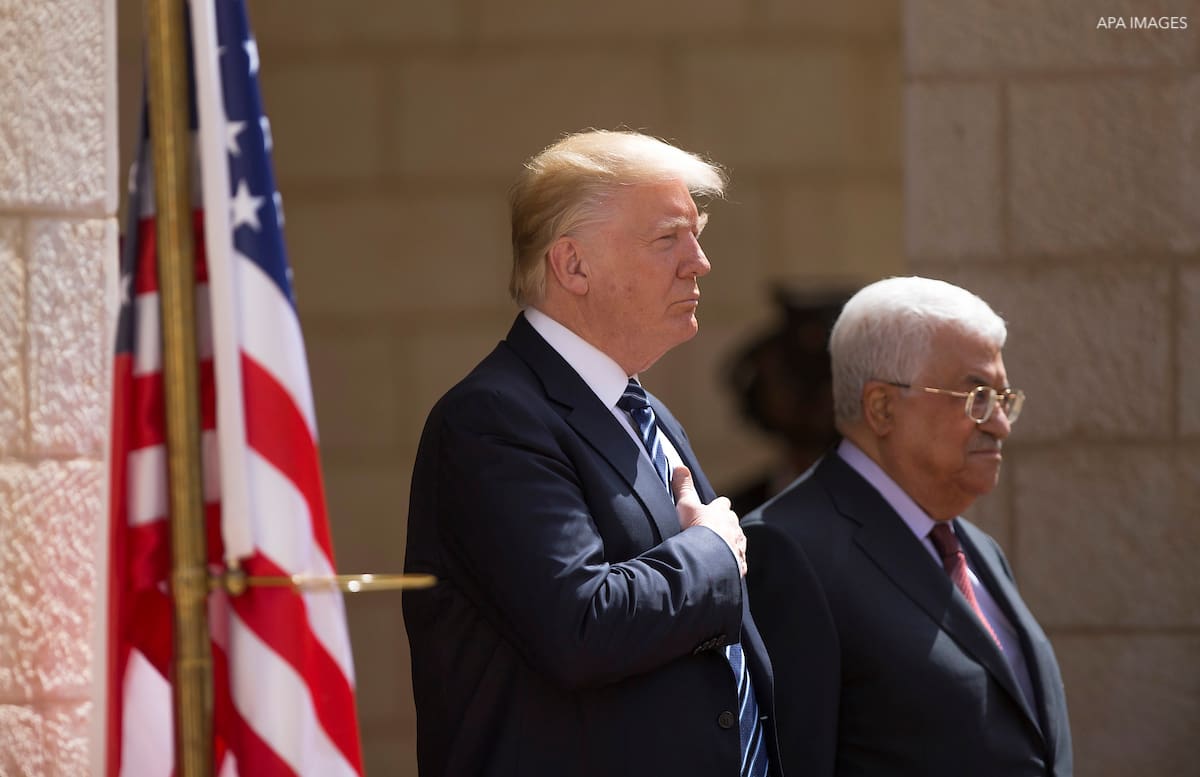
Many mainstream political ideas about the future of Palestine are primarily concerned with the containment of indigenous Palestinians and security for the Israeli settler state. The most recent manifestation of this was the Trump administration’s “Vision for Peace, Prosperity and a Brighter Future for Israel and the Palestinian People.” This “vision” proposed nothing less than Palestinian capitulation in which Palestinians in the West Bank would be encased in a series of Bantustans and the Gaza Strip would remain a besieged enclave while the rights of Palestinians in exile, including those of refugees, would be forsaken.1
Trump’s vision – effectively dictated by the Israeli right – does not radically break from what has previously been presented to Palestinians as possible futures. Rather, it follows a tradition of peace proposals over the past decades in which Palestinian futures are not premised on fundamental rights and Palestinian aspirations of sovereignty are disregarded. Some argue that the Trump vision is more candid than prior peace efforts in that it blatantly depicts what the US and Israel consider an acceptable form of Palestinian statehood: The map proposed by the vision document provides an accurate reflection of the current geopolitical reality on the ground.
The Palestinian leadership has responded weakly, continuing to adhere to a political line that has led the Palestinian people to their most vulnerable point in history since 1948. Moreover, Palestinian leaders have been misdirecting their hopes onto actors who have demonstrated over decades that they do not have the political will to deliver on Palestinian rights such as the European Union and its member states. They have also been pursuing unpopular and unstrategic political dialogues, such as the PLO-sanctioned “communication committee” that met with Israeli politicians from the Israeli Labor Party (Meretz) in Tel Aviv in February 2020. The latest declaration by Abbas to cancel all agreements with Israel and America follows previous similar declarations and threats which amounted to very little. The extent to which this is carried out this time remains to be seen.
Despite these obstacles, Palestinians can use the Trump “vision” to break free of the political frameworks that have limited their rights and freedoms for so long. There are many ways in which the impending disaster of further Israeli annexation and dispossession can be countered and transformed into opportunities. Here are just three.
- For many Palestinians the illusion that negotiations would fulfil Palestinian rights was shattered in the years following the Oslo Accords, when it became clear that the agreement would lead to Palestinian capitulation. However, for much of the rest of world the illusion is only beginning to shatter. Understanding this reality is key if third parties genuinely want to secure Palestinian rights. Equally important is moving forward with a rights first-based approach, that is, one that acknowledges the inherent power imbalance between Palestinians and Israelis and seeks to achieve Palestinian fundamental rights before political negotiations. Pushing third parties in this direction will require concentrated and strategic efforts by Palestinian civil society and the Palestine solidarity movement to educate and hold third parties accountable, particularly in Europe, given their past willingness to let the US lead the so called ‘peace-process’.
Moving forward with a rights first-based approach … to achieve Palestinian fundamental rights before political negotiations Share on X
- The tepid global response to Trump’s vision despite its total undermining of international law demonstrates the limits of the international legal regime in protecting Palestinians from aggressive Israeli colonialism. Enthusiasts of international law should take note: It is imperative that Palestinians consider international law as only one tool in a wider strategy of resistance and redistribute energy to other tools, such as boycotts, rebuilding community networks, and strengthening solidarity with other struggles.
- The reality outlined above means that Palestinians must reset their political agenda and strategy. To do this they need an accountable, legitimate, and representative leadership that can put forward a future vision built on a broad consensus amongst Palestinians. In the absence of sovereignty and self-rule it is necessary to consider alternative ways in which this representation and consensus can be achieved outside of the current structural confines. Indeed, Palestinian history provides us with a wealth of examples where revolutionary legitimacy and democracy can be practised outside of the current confines, including those imposed by foreign donors. The 1936-9 Palestine-wide uprising against British rule, the PLO’s success in bringing the Palestinian narrative on a hostile West between 1968 and 1988, and the committees and revolutionary groups of the First Intifada (uprising) are just three examples that provide many such lessons.
- To read this piece in French, please click here. Al-Shabaka is grateful for the efforts by human rights advocates to translate its pieces, but is not responsible for any change in meaning.








